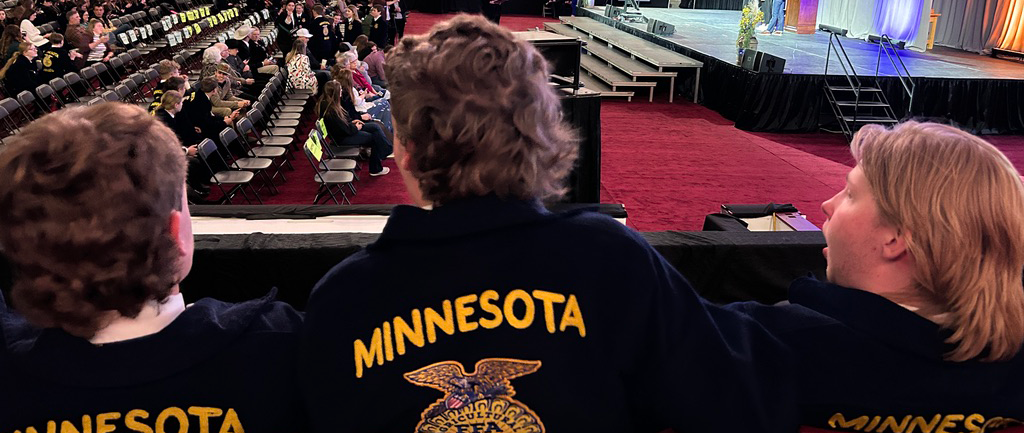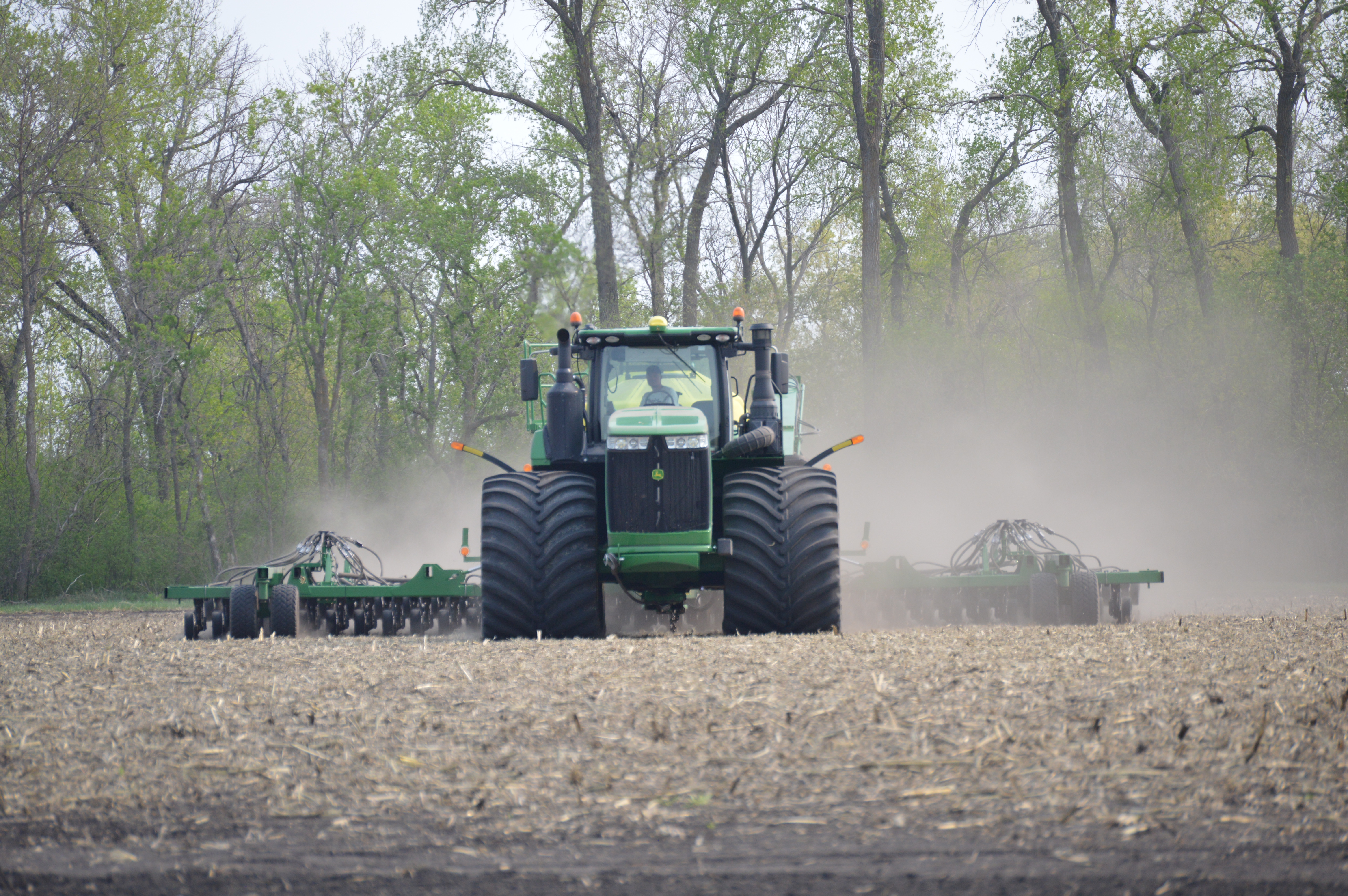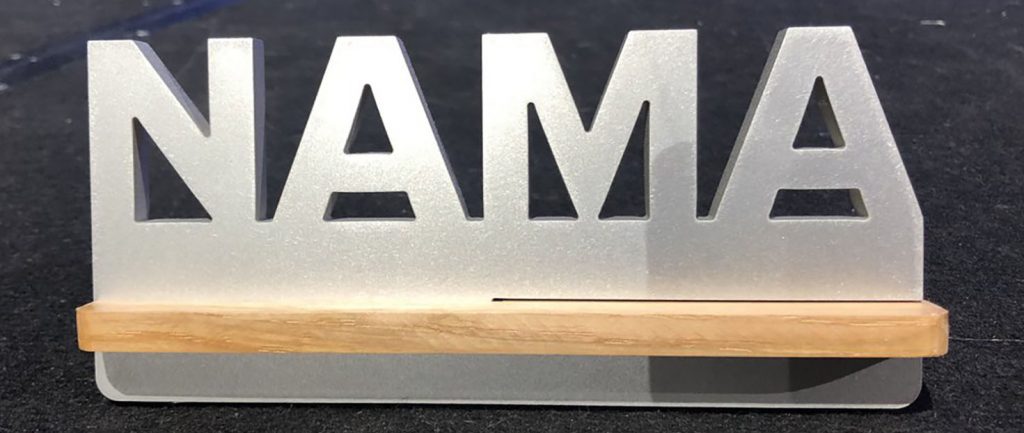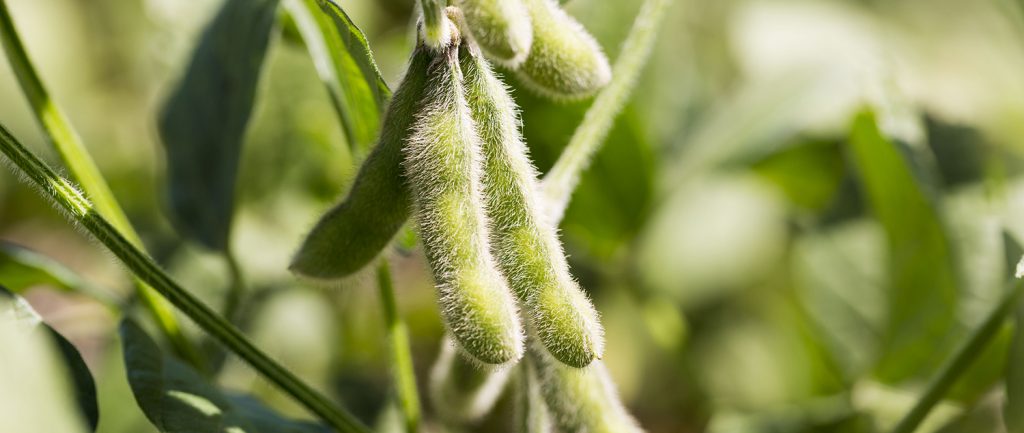The SCN Coalition – a public/checkoff/private partnership launched in 2018 to increase the number of growers who are actively managing soybean cyst nematode (SCN) – won the Best of Show National Agri-Marketing Association (NAMA) Award in Public Relations for its media relations campaign. NAMA is the largest U.S. association for marketing and agribusiness, and the Best of NAMA Awards honor the nation’s best work in agricultural communications.
Engaging print, digital and broadcast media has been integral to the Coalition’s success. As SCN is the No. 1 yield-grabbing pest of soybeans in the U.S. and Canada, the Coalition focuses on delivering timely information to soybean growers and agronomists about managing SCN, as well as updates on checkoff-funded research projects that bring more tools in the fight against this pest.
Since its launch in 2018, the Coalition’s media outreach efforts have generated 19.1 million potential impressions among North America’s soybean growers and agronomists.
The SCN Coalition includes university scientists in 28 states and Ontario, grower checkoff organizations such as the North Central Soybean Research Program (NCSRP), United Soybean Board (USB) and state soybean promotion boards (including the Minnesota Soybean Research & Promotion Council, as well as partners in the private sector, including BASF, Bayer, Growmark, Nufarm, Pioneer (Corteva), Syngenta, Valent and Winfield United.
“SCN is too big of an issue for any one organization to tackle,” says Samuel Markell, plant pathologist at North Dakota State University and leader of The SCN Coalition. “Our initial research showed a low percentage of soybean growers realize how much of a threat SCN still is to yields. The SCN Coalition brings the soybean industry together to disseminate information and tools for better pest management.”
Becoming one voice wasn’t a simple process, Markell acknowledges. “With help from MorganMyers, the Coalition’s strategic communication firm, we have been successful in pooling our resources and leveraging each organization’s strengths,” he says. “We have been successful in reaching soybean growers and their supporting agronomists multiple times and in multiple ways. We stay true to our mission of encouraging soybean growers to increase active SCN management in order to improve profitability, while providing them with the latest information about scientific discoveries.”
Kaitlyn Bissonnette, plant pathologist at the University of Missouri, says the Coalition’s media relations strategy helps tell the SCN story to soybean growers in her state, where more generations of the pest can reproduce compared to northern soybean-growing states. “This is a longevity issue. We’re not just managing SCN now; we’re encouraging soybean growers to manage it for the long run,” she says. “I like to talk to growers about how SCN fits into their management strategies. It starts with splitting off their fall soil fertility test for an SCN egg count.”
Another source of media outreach stems from the National Soybean Nematode Strategic Plan. The USB and the NCSRP joined forces with university scientists and agricultural companies to coordinate and support complementary research and education projects to develop short- and long-term solutions for plant-parasitic nematode control.
“Because 95 percent of SCN-resistant varieties have the same source of resistance, known as PI 88788, SCN populations are becoming resistant to this source of resistance and feeding more aggressively on the soybean host,” says Melissa Mitchum, molecular nematologist at the University of Georgia. “Scientists are working to find as many different modes of action as possible to give growers an arsenal of new tools to protect soybean yields from these plant-parasitic nematodes.”
Iowa State University nematologist Greg Tylka, founder and leader of the original Coalition, says people became complacent from the success of PI 88788 resistance in the early 1990s, which provided yield protection against SCN for decades.
“Now we’re seeing SCN populations throughout the U.S. with high levels of reproduction and damage on resistant soybean cultivars with PI 88788 and we have a deeper appreciation of the importance of protecting that resistance technology,” he says. “With The SCN Coalition’s public relations campaign, I’m hopeful growers will recognize the need to sharpen their SCN management strategy and take action to begin to recover yield lost to SCN. And, through checkoff-funded research, it’s possible that an arsenal of new weapons could be available in the future for growers to incorporate into their SCN management programs.”
“The Coalition is well supported and nimble, and prepared to reach growers in a virtual world,” says Tenuta. “If we can’t bring growers to the field in 2020, we’ll bring the fields to the growers.”
The SCN Coalition wants soybean growers to know SCN is manageable
“As SCN spreads to new areas and becomes more damaging in established areas, it’s important that soybean growers are well equipped for the fight,” Markell says. “We have a pathogen that’s changing and adapting, but we also have a team that’s dedicated to providing growers with the best management tools and information as possible. We will mitigate this pest if we adapt as fast as the nematode, and The SCN Coalition is helping us get there.”
Minnesota Soybean earns three nominations
For the fourth straight year, MSR&PC garnered a NAMA nomination. Both the Council and Minnesota Soybean Growers Association earned first-place wins at the Region III Awards in January. More than 1,000 entries were submitted across six regions for the national awards.
The Council was awarded a nomination for its digital #FollowAMNFarmer campaign, conceived and executed in-house by Manager of Digital Engagement Kristeena Thisius. The Council was nominated among submissions from Cargill, BASF, Pioneer and Bayer, respectively. The grassroots social media campaign followed Minnesota farmers filming themselves as they navigated a challenging planting season in 2019. The clips were shared across the Council’s social media platforms and YouTube page in spring 2019. Several of the videos covered Minnesota growers Darin Johnson and Jamie Beyer discussing farmer mental health.
The Council also scored a nomination for its baseball-themed 2018 Annual Report . It was the second straight year the Council’s Annual Report was nominated for the award, following a first-place win for its 2017 Annual Report.
Soybean Business, MSGA’s official magazine, was nominated for the first time in the publication’s history for a trio of issues in 2018 and 2019 covering the agriculture economy, MSGA’s advocacy efforts and a preview of its MN AG EXPO trade show.
The two organizations are both managed by the Mankato-based Ag Management Solutions.







